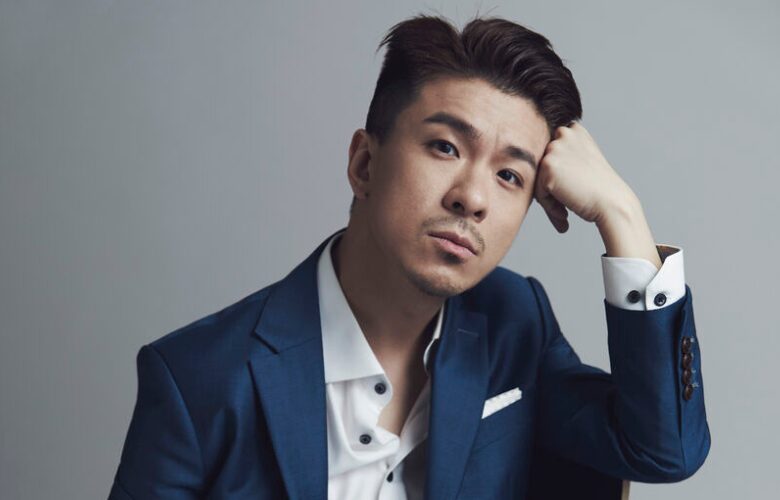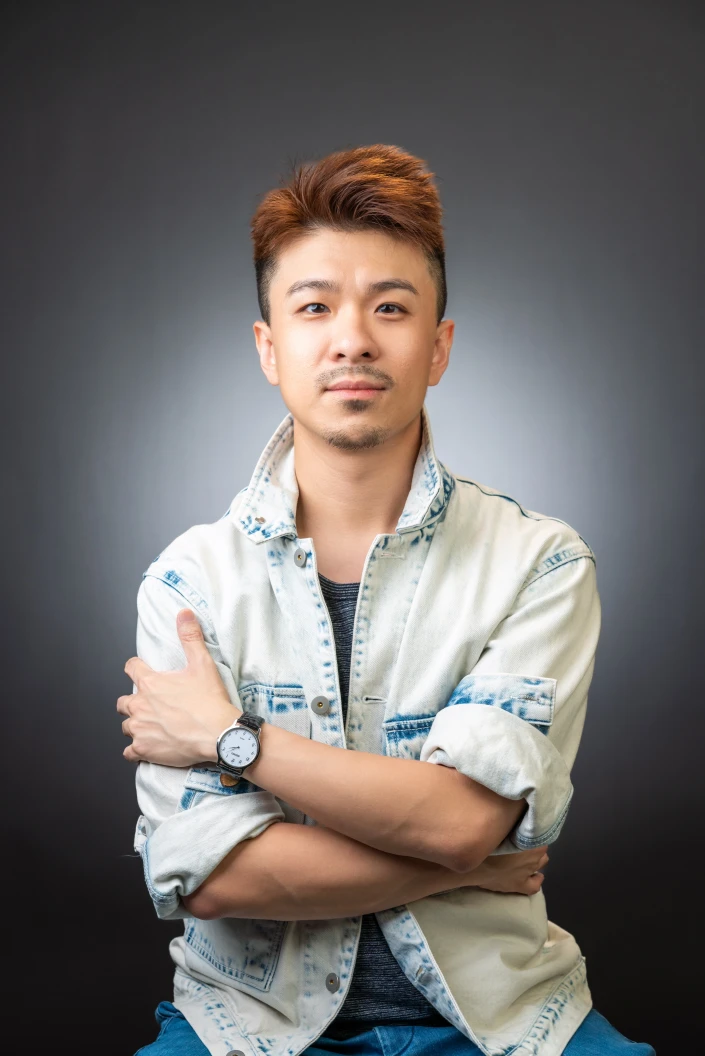Billy Sy: Actor, Director, and Lecturer in Hong Kong

Billy Sy is an actor and, since a couple years ago, also a lecturer at the Hong Kong Academy for Performing Arts’ School of Drama. As an actor, Billy has enjoyed a successful career in Hong Kong, working with both local and international productions. In this interview, he speaks with us about his passions, the unique Hong Kong theatre world, as well as the current state of affairs.
Liam Klenk: Hello Billy, how did you get into acting? What sparked your passion?
Billy Sy: When I went to the UK for boarding school, I took ‘Drama and Theatre Studies’ as one of my A-Level subjects. I had a very inspiring drama teacher who introduced me to the intriguing world of theatre.
That made me want to pursue acting as my career. As time went by, I also got more and more into writing and directing, which are what I am primarily doing now.
LK: Do you want to share a couple of experiences with us that shaped you as an artist?
BS: Instead of pinpointing specific experiences, I would say three stages in my life have shaped me as the artist I am now.
The first profound experience was the training I had at the Central School of Speech and Drama in London. This was in 2006, when I went to do the ‘MA Advanced Theatre Practice’ course in the ‘Performing strand’. Apart from having regular performance training, the course also trained us to be theatre practitioners. We were always creating new works in a collaborative environment with students who are directors, dramaturges, scenographers, designers, etc. This has shaped the way I practice my art. I was lucky enough to get signed by an agent before I graduated, so I started turning up to auditions and castings of all sorts. My two years of working in London gave me invaluable experience not just in acting, but also in movement directing. That’s the second stage of specific experiences that shaped my life as an artist. The third stage would be me coming back to Hong Kong. Somehow, life took a different turn for me and I began acting in musical theatre a lot.
I also worked in plays and did voice-over while I continued to develop my interest in movement directing and devising. Slowly, this expanded my career into writing, directing, and teaching.
LK: What is your impression of Hong Kong’s theatre world? What do you love about it?
BS: With our British colonial past, the theatre scene in Hong Kong, including its training, is a melting pot of eastern and western cultures.
We still produce a lot of translated plays and musicals from the West, but we also create our own works. Our theatre world is constantly evolving with the historical and political changes. A lot happens and grows in this city.
On a negative note, though, Hong Kong is one of the world’s most expensive cities to live in. And, most people have very long working hours. The pressure of ‘surviving’ in this city makes it difficult for the demand for theatre to grow. As for pursuing a career in theatre, it is incredibly difficult. Yet, we are forward-looking, creative, pragmatic and never succumb to adversity. That’s the spirit of Hong Kong, and I love it.
LK: When working for them, did you see any differences between Hong Kong companies and international theatre companies? And, is there an independent theatre scene in Hong Kong?
The main differences are in cultural policies. In Hong Kong, almost all our theatre venues are run by the government with a booking system catered for different events. Apart from a few partnership schemes between theatre companies and venues, we rarely have shows that can run for more than a week. If we are to do the same show again, we have to book a different time slot in a different season as a re-run. As for the independent theatre scene: In fact, most theatre companies in Hong Kong are run independently. We have a great diversity of works.
However, we have a considerable lack of fringe theatre venues where new works can present their ‘work-in-progress’ performances or previews. This has to do with funding by our government for small- to medium-scale theatre companies.
Many great (and big) shows started small. But all these factors I mentioned above make it harder for us to further develop our new works.

LK: You are now teaching at the Hong Kong Academy for Performing Arts? How did this come about? What are your experiences so far?
BS: Yes, I am currently a full-time lecturer of Voice and Movement at the School of Drama at HKAPA (The Hong Kong Academy for Performing Arts). Before I started working here, I had taught a few short courses in acting, voice, and movement, respectively, at different theatre companies.
At first, I was a part-time voice teacher at the school. Then, a position for a full-time Lecturer of Voice and Movement was opened, and I applied. My experience of working at HKAPA so far has been fruitful and enriching. The Drama Faculty is a very strong team. We are all local theatre practitioners, and yet we are all international. We understand that we are at a special place within the global cultural scene, and we share the same visions of how theatre training in the coming future needs to be.
LK: What advice do you give young students, dreaming of a career on stage in Hong Kong?
- BS:Your training will never end. When you graduate from drama school, it means you’re supposed to be ‘more ready to learn’ from the real world.
- Whether you work in theatre, film, TV, or other performance-related fields, it’s all about collaboration. We are continually learning from our experience and from each other.
- If you want to be an actor, try to work at other jobs. It’s good to know what different professions are like.
- When you have no jobs, try to create your own work.
- At the end of the day, we are our own best teacher.
LK: How does the current political situation affect the art world? Are there any concrete changes in the curriculum, or in theatre in general?
For the art world in general, under the new National Security Law, several slogans that we saw in the protest and on media can no longer be shown. That’s the most transparent and definite change that we all know of. At the moment, there aren’t any changes in our curriculum or in theatre in general.
Thank you very much for the interview Billy! And all the best for the coming months and years!
Back to Home
Billy Sy Billy Sy Billy Sy
Editor's Note: At StageLync, an international platform for the performing arts, we celebrate the diversity of our writers' backgrounds. We recognize and support their choice to use either American or British English in their articles, respecting their individual preferences and origins. This policy allows us to embrace a wide range of linguistic expressions, enriching our content and reflecting the global nature of our community.
🎧 Join us on the StageLync Podcast for inspiring stories from the world of performing arts! Tune in to hear from the creative minds who bring magic to life, both onstage and behind the scenes. 🎙️ 👉 Listen now!
